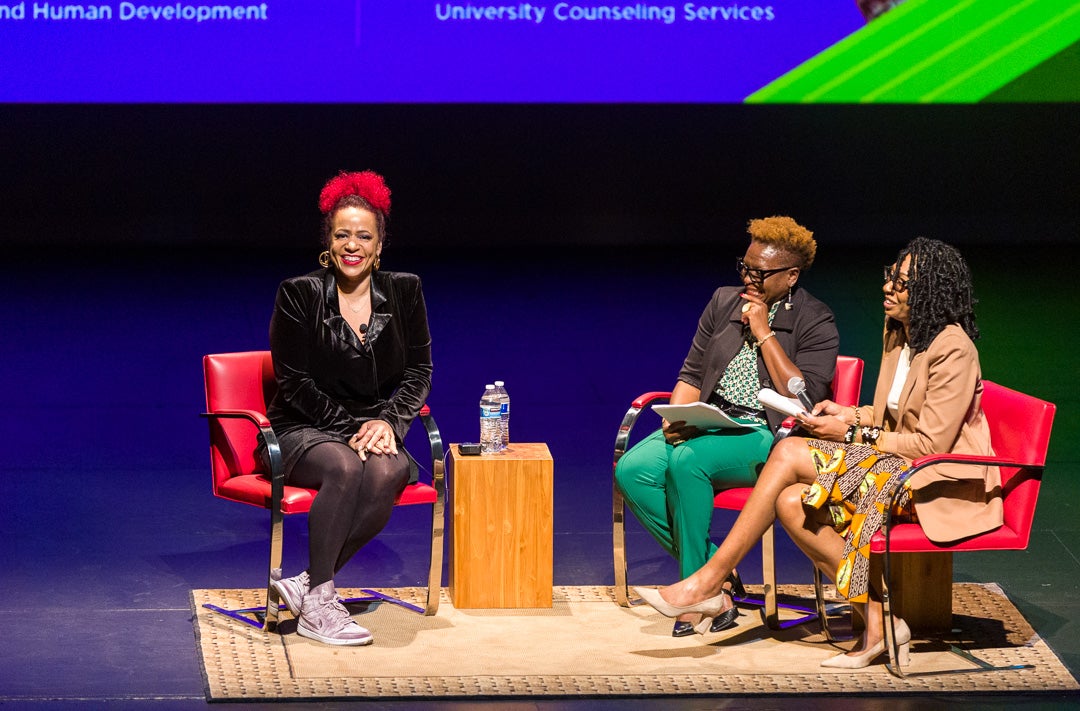By: Riley Sullivan NORTHRIDGE — Pulitzer Prize winning Author Nikole Hannah-Jones recently stopped by California State University, Northridge (CSUN) to discuss her seminal book, “The 1619 Project.”
NORTHRIDGE — Pulitzer Prize winning Author Nikole Hannah-Jones recently stopped by California State University, Northridge (CSUN) to discuss her seminal book, “The 1619 Project.”
In the book, originally published by The New York Times, Hannah-Jones describes the legacy that chattel slavery has continued to have on American institutions, well after emancipation. The conversation began by discussing how history is taught through school, pop culture and monuments.
“Is history scientific or is it to make us feel better about ourselves?” said Hannah-Jones, “It can be difficult for white Americans to understand this because they haven’t been erased from the story.”
According to Hannah-Jones, society has created a notion that children are not ready to understand the truth about society, so historians keep the truth from them. Most young adults graduate from high school in the United States without being taught that slavery was one of the main causes of the Civil War, and the lack of a comprehensive education is why there are people who may disagree with her research, she said.
“Children aren’t being taught to be skeptical of these narratives, so much of the responses to “The 1619 Project” is that ‘this can’t be true’,” Hannah-Jones said.
While many people chose to come to America with the hope of independence and prosperity, chattel slavery was the beginning of Black history in America. This has made Black history inherently political, the reason why it is not taught truthfully in the United States, and why education’s goal should be to simply educate, not to create patriotic citizens, she said.
To counter “The 1619 Project,” Texas Governor Greg Abbott approved a draft of a document “The Texas 1836 Project” to promote a “patriotic education.” The title derives from the year Texas declared its independence from Mexico, partially because Mexico was making attempts to ban slavery.
Hannah-Jones said when legislation amends old laws or creates new ones, it inherently affects every marginalized community. In terms of the Civil Rights Movement of the 1960s, the push for equality from the Black community also helped to bring the same rights to other groups. Conversely, “When you’re at the bottom, you understand that if anybody above you loses their rights, you lose yours,” she said.
While states like New York and California are considered to be inclusive and diverse, their education systems may not reflect the perceptions. Hannah-Jones said New York state is the most segregated for Black students and California is the most segregated for Latinx students, according to her research.
“We speak the (inclusive) language here, but we know that Florida is more integrated than New York and it’s probably more integrated than here,” Hannah-Jones said.
The author said her passion for researching and advocating for more accurate portrayals of Black history in America stems from an attempt to repay a debt to her ancestors. She recounted that the best job her grandmother had was as a custodian, a reflection of the lack of opportunities afforded her.
“Every dream she couldn’t achieve, led me to where I am and to do what I'm doing,” Hannah-Jones said.

